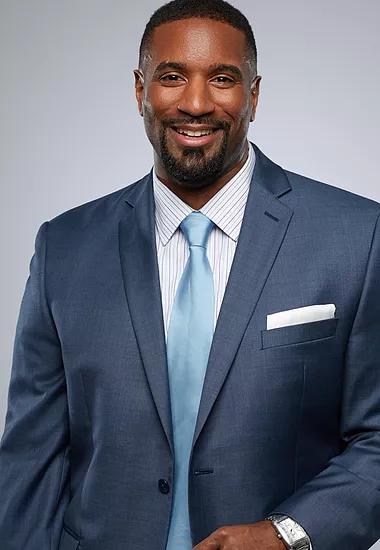So, you’ve been struck by inspiration. You’re so in love with an idea, you decide to write a book.
Writing a book may seem like a piece of cake for those who haven’t yet embarked on this journey. But the truth isn’t quite as simple. First, there’s the fact that one has to plot the outline of their book. Some people go through with detailed plots and outlines; some prefer to stick to the wilder methods of writing whatever comes to mind. Regardless, one is advised to at least have a rough idea of how their book is going to go.
But writing the first draft isn’t the end of it. After this comes the painful process, the much-dreaded term: editing. That takes a substantial amount of time, where the writer might even have to rewrite certain parts of their finished book to better appeal to their audience.
And after the second, perhaps even third or fifth, or ninth draft is finally complete, a writer has one last hurdle to overcome: publishing.
The Dilemma When it Comes to Traditional Publishing

Many authors are faced with a predicament once they reach the publishing stage. First of all, they should decide whether they want to opt for traditional publishing or self-publishing.
If one has dreamed of becoming a published author for a long time, their dreams were likely constructed with the idea that their books would be good enough to be published by traditional publishing houses. With publishing houses come the ‘glamor’, so to speak. There’s an easy reach in mainstream media, where one’s work would more likely be put up on bookshelves wherever book-lovers converge.
“When someone is trying to decide whether they want to opt for self-publishing or resort to indie-style publishing houses – like the ones I work with – or if they want to go down the traditional route, they need to ask themselves some things,” advises Adriana Alvarez, CEO and founder of AMA Publishing, which specializes in coaching publishing companies. “Firstly, ‘What kind of timeline am I looking at? Am I okay with pitching and putting out proposals for two to three years? Am I okay with finally getting a ‘yes’ after at least a year? Or do I want my book out to the world now?’”
Indeed, traditional publishing isn’t the marker for an author’s success. One has to ask themselves, are traditional publishing houses really the determinant for whether or not a writer’s work is good?
Forbes reported a study that found that the publishing industry is still male-dominated even in this twenty-first century. Hence, people like Adriana and her team at AMA Publishing emphasize the importance of including women in publishing.
Of course, traditional publishers aren’t the devils some people make them out to be. Understandably, quality control has to be imposed in places where there’s a high influx of manuscripts. And traditional publication allows an author to rely on a team of experienced professionals who will help them get their book out on the market.
But of course, every choice comes with a risk.
“Traditional publishing houses are going to change your voice. And they have the right to do that. That’s built into their contracts – they’re going to decide what actually goes into your book. If you want to maintain your voice and you don’t want anyone messing with it, then traditional publishing may not be for you,” says Adriana.
Self-Publishing and Indie Publishers

Self-publishing or smaller, independent publishers, on the other hand, can offer an author greater control. Sure, it costs quite a bit to go through the process of publishing. And books that aren’t published via the mainstream route may not reach an audience of millions, but that depends on the genre, quality, and the publishing circumstances of a book.
“I know I was conditioned for a long time to think about traditionally published books as ‘real books’, and self-published books as exercises in vanity or desperation by those who just couldn’t hack it,” claims Jeff Deck, author and editor.
“One of the fantasies lots of people have when it comes to traditional publishing is that they think, ‘If I write a book and finally land a deal, then all of the marketing will be handled for me. They’re going to get my book out to thousands, hundreds of thousands, millions of people.’ The truth of the matter is that they’re not. They’re going to want you to do the marketing, to build your audience or come to them with your own audience,” Adriana says.
Whether you’re opting for traditional publishing or the less conventional methods of publishing, every writer needs to build an audience for themselves.
Adriana continues, “The thing that I love about indie publishing is that you have a publisher who’s taking you along for the ride, letting you know what’s coming next. They actually know you, they care about your story, they care about the success of your project. You’re not just another number, another book in a giant factory. The traditional publishing industries work with so many people in a year, that’s all you’re going to be: another number.”
The Old King is Dead. Long Live the New King?

Maybe it’s time authors stop shying away from the idea that they have to wait for traditional publishers to accept their work. If you want to share something with the world, why not just go ahead?
But the perils of unconventional publishing methods include the risk of flailing about due to one’s inexperience.
“The biggest struggle authors have is that they’re incredibly capable in one area, but they’re an absolute novice in [publishing]. What ends up happening is that they write their book and it sits on their desktop forever. They’re too busy to handle the whole process by themselves.”
Adriana’s recognition of this issue stands as a testament to the necessity of hiring an experienced team. One needs to hire a publisher, who ideally will help them find a competent team. This team should be able to take on the nitty-gritty for the author: the editing, formatting, uploading the book onto a suitable platform, and so on. Authors need advice on how to rally an audience to buy their book during the launch. What authors need is a good project manager who will help them go through the motions of publishing.
All in all, a writer must choose for themselves how they want to go about getting their book into the world. What matters most, of course, is that their voice is heard.




